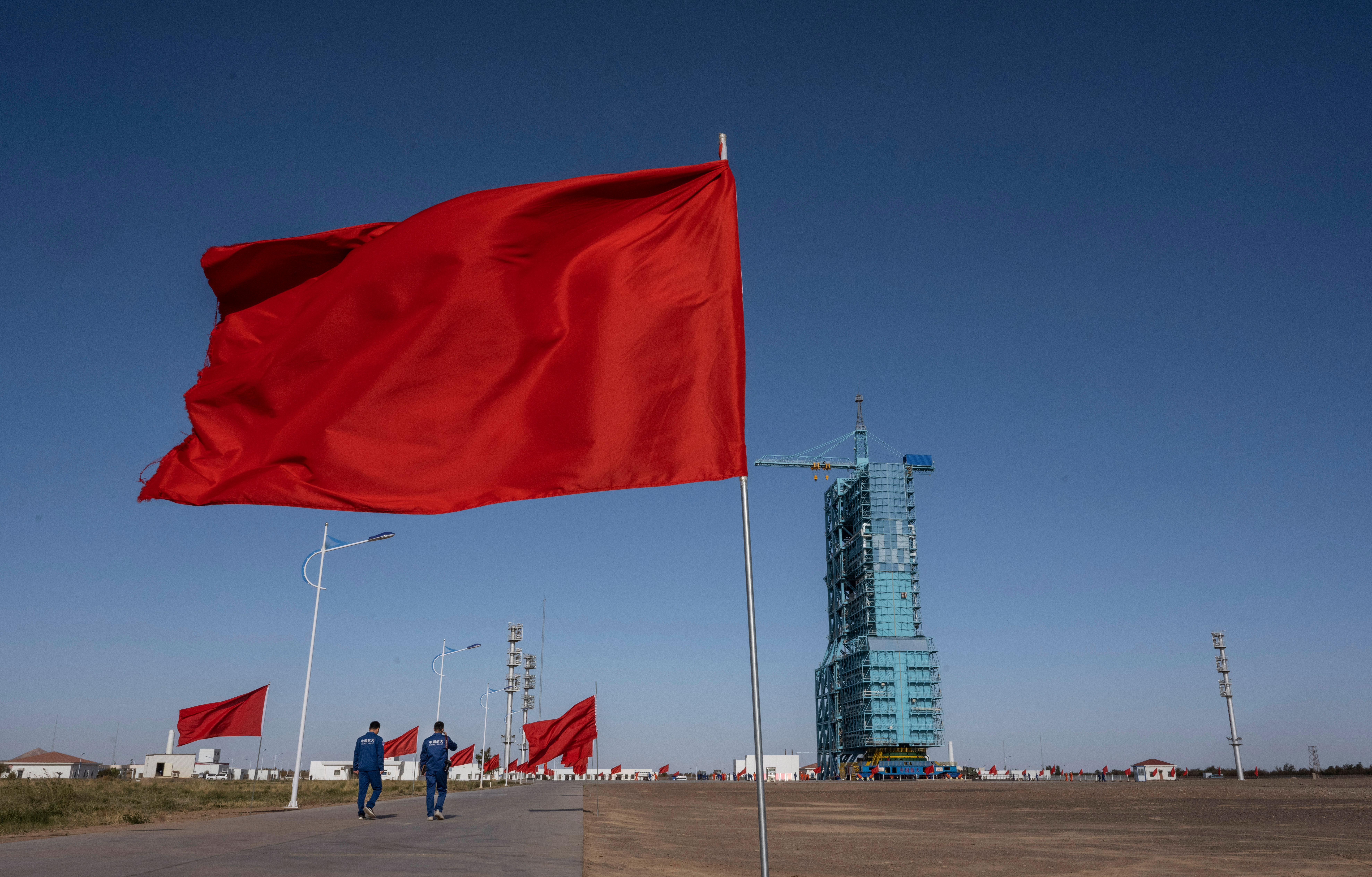Watch China Launch A Manned Six-Month Mission To Its Newly Completed Space Station
Three of China's most experienced astronauts to crew the Tiangong space station.
While space-loving Americans focus on their own impressive Artemis missions, China is making its own important leaps into the surly unknown Tuesday morning by sending a three-person crew up to its newly completed space station.
The launch of the 20-story Shenzhou-15 rocket is scheduled for Tuesday night local time, 10:08 a.m. Eastern for us in the U.S. out of the Jiuquan Satellite Launch Center in China's expansive Gobi Desert. The rocket will carry astronauts Fei Junlong, Deng Qingming, and Zhang Lu to the station, where they will live and work until replacements arrive in May. Astronauts completed construction on the Tiangong space station in October.
China is no slouch when it comes to space. Right now, there are only two space stations currently in Low Earth Orbit: the Tiangong and the International Space Station. For a brief time in 2018, after a Soyuz failure, China was the only game in town for getting into space. China is also planning a manned lunar mission, and currently has rovers exploring both Mars and the Moon as well as a satellite studying the sun.
Chinese officials said Monday they would welcome international astronauts to the station, the New York Times reports. Space, once a collaborative effort that transcended national borders, has increasingly been viewed as an extension of decidedly Earth-bound concerns such as the formation of America's newest military branch, Space Force, and the saber-rattling coming out of Roscosmos in the early days of the Ukrainian invasion. Russia ended up pulling out of the ISS completely over the summer, with an aim to build its own space station. The ISS itself will likely be de-orbited by 2031, according to NASA officials. Instead, NASA will focus on the Lunar Gateway Project, a space station around the moon that will serve as a jumping-off point for exploration of the lunar surface.
